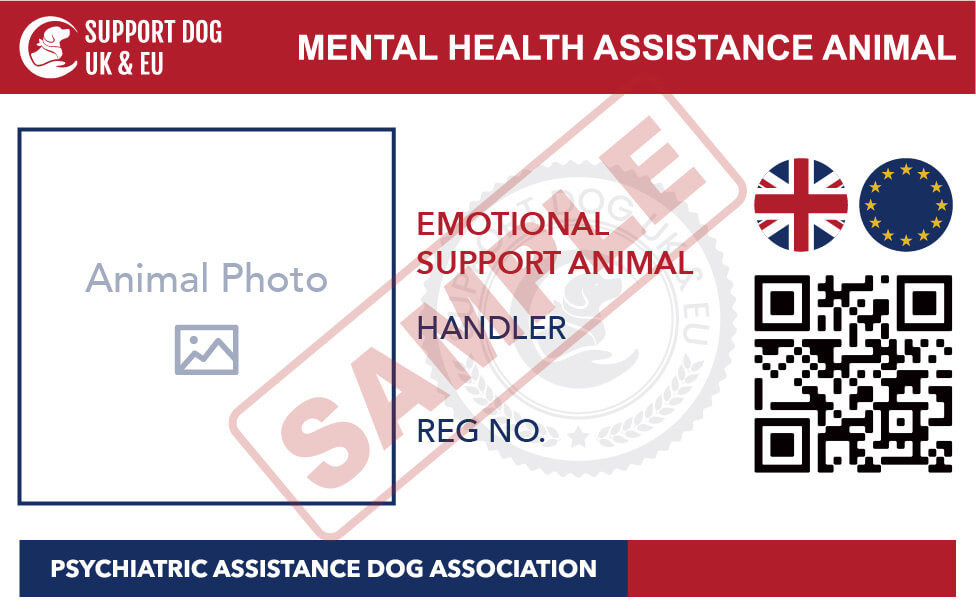Emotional support animals (ESAs) provide comfort and assistance to people with mental or emotional disabilities. In the United Kingdom (UK), there is no specific legal recognition of ESAs, and they do not have the same legal status as assistance animals, such as guide dogs for the visually impaired. As a result, many landlords may be unsure about their obligations regarding ESAs and may question whether they can deny a request for an ESA from a tenant. In this blog post, we will explore the legal framework surrounding ESAs in the UK, the responsibilities of landlords, and the circumstances under which a landlord may deny a request for an ESA.
Legal Framework for ESAs in the UK
In the UK, there is no specific legal recognition of ESAs. However, the Equality Act 2010 provides protection against discrimination for people with disabilities, including those with mental or emotional disabilities. Under the Equality Act, it is illegal for landlords to discriminate against tenants with disabilities, including those who require an ESA. Discrimination includes the refusal to make reasonable adjustments for tenants with disabilities, such as allowing an ESA to live in a property.
Additionally, the Animal Welfare Act 2006 sets out the legal obligations of pet owners, including the responsibility to ensure the welfare of their animals. This includes providing appropriate accommodation, food, water, and veterinary care. While ESAs do not have the same legal status as assistance animals, landlords must still ensure that any animal living in their property is well-cared for and does not pose a risk to the health or safety of other tenants or the property itself.
Responsibilities of Landlords
Under the Equality Act, landlords have a legal obligation to make reasonable adjustments for tenants with disabilities. This includes allowing tenants to have an ESA in their property if it is deemed necessary for their mental or emotional well-being. Landlords cannot charge additional fees or deposits for an ESA, and they must make sure that any pet-related clauses in a tenancy agreement do not discriminate against tenants with disabilities.
However, landlords are not required to make adjustments that would cause them undue hardship or that would fundamentally alter the nature of their business. For example, if a tenant's ESA is a large animal that would cause significant damage to the property or pose a risk to other tenants, the landlord may be able to refuse the request for an ESA. Additionally, if allowing an ESA in a property would violate health and safety regulations or other legal requirements, the landlord may be able to deny the request.
Circumstances Under Which a Landlord May Deny a Request for an ESA
While landlords have a legal obligation to make reasonable adjustments for tenants with disabilities, there are circumstances under which they may be able to deny a request for an ESA. These circumstances include:
1. The ESA poses a risk to the health or safety of other tenants:
Landlords have a responsibility to ensure the safety of all tenants in their properties. If allowing an ESA in a property would pose a risk to the health or safety of other tenants, the landlord may be able to deny the request.
2. The ESA would cause significant damage to the property:
Landlords have a responsibility to maintain their properties and ensure that they are in good condition. If allowing an ESA in a property would cause significant damage, such as to carpets, walls, or furniture, the landlord may be able to deny the request.
3. The ESA would violate health and safety regulations:
Landlords have a responsibility to comply with health and safety regulations, such as those related to fire safety or building codes. If allowing an ESA in a property would violate these regulations, the landlord may be able to deny the request.
4. The landlord can demonstrate undue hardship:
While landlords have a legal obligation to make reasonable adjustments for tenants with disabilities, they are not required to make adjustments that would cause them undue hardship or that would fundamentally alter the nature of their business. If the presence of an ESA in a property would cause the landlord undue hardship, such as significant financial costs or disruption to their business operations, the landlord may be able to deny the request.
It is important to note that landlords cannot simply deny a request for an ESA without proper justification. Landlords must provide a clear and valid reason for denying a request, and they must be able to demonstrate that the denial is based on legitimate concerns related to health and safety, property damage, or undue hardship.
FAQs
Can Landlords Charge a Fee or Higher Deposit for an ESA?
Under the Tenant Fees Act 2019, landlords cannot charge extra fees for accommodating an ESA if it's part of a disability adjustment. However, they can still deduct for damage or additional cleaning from the tenant's security deposit. Clear communication upfront helps avoid conflict or unexpected costs.
What Documents Can a Tenant Provide to Support ESA Requests?
To strengthen your case:
• Provide a letter from your GP or mental health professional confirming your diagnosis and need for an ESA.
• Share details about your ESA: name, breed, temperament, and how it supports you.
• Optional: ESA registration certificate or ID card, which while not legally binding, adds legitimacy.
• You may also include an agreement on how you'll maintain the property and manage the pet responsibly.
How to Communicate with Your Landlord About an ESA
When requesting ESA accommodation:
1. Start with an email or letter explaining your mental health needs.
2. Attach documentation from your medical provider.
3. Be clear, respectful, and offer compromises (e.g., no access to certain rooms, weekly cleaning).
4. Proactively address concerns about noise, damage, or hygiene.
Sample message:
"Dear [Landlord's Name], I'm writing to request that you allow my emotional support animal, [Pet's Name], to reside with me. I've included a letter from my doctor explaining how [he/she] helps with my [condition]. I am committed to maintaining the property and ensuring [Pet's Name] does not cause any damage or disruption. Please let me know if you'd be willing to discuss this further."
What Tenants Can Do If Their ESA Request Is Denied
Try to resolve the issue through open communication. If unsuccessful, escalate to the Housing Ombudsman or your local council's housing team. You may also seek advice from the Equality and Human Rights Commission (EHRC). In some cases, legal action under the Equality Act may be appropriate.
Best Practices for Landlords
If you're a landlord:
• Evaluate ESA requests in good faith, especially when medical documentation is provided.
• Understand that making a reasonable adjustment may be required under UK law.
• Avoid blanket "no pets" policies without considering exceptions for disability accommodations.
• Keep documentation and ensure any denial is supported by clear, objective reasoning.
Summary
In the UK, landlords have a legal obligation to make reasonable adjustments for tenants with disabilities, including those who require an ESA for their mental or emotional well-being. While landlords have the right to protect their properties and ensure the safety of their tenants, they cannot discriminate against tenants with disabilities or deny requests for an ESA without proper justification.
If you are a tenant with a disability and you require an ESA, it is important to understand your legal rights and the responsibilities of your landlord. You should provide your landlord with a clear and detailed explanation of why you require an ESA and how the animal will help you manage your condition. If your landlord denies your request, you may be able to challenge their decision by filing a complaint with your local council or seeking legal advice.
In conclusion, while landlords do have some discretion to deny requests for ESAs in certain circumstances, they must be able to demonstrate that their decision is based on legitimate concerns related to health and safety, property damage, or undue hardship. Landlords should work with their tenants to find reasonable solutions that accommodate the needs of tenants with disabilities, including those who require an ESA for their mental or emotional well-being.













